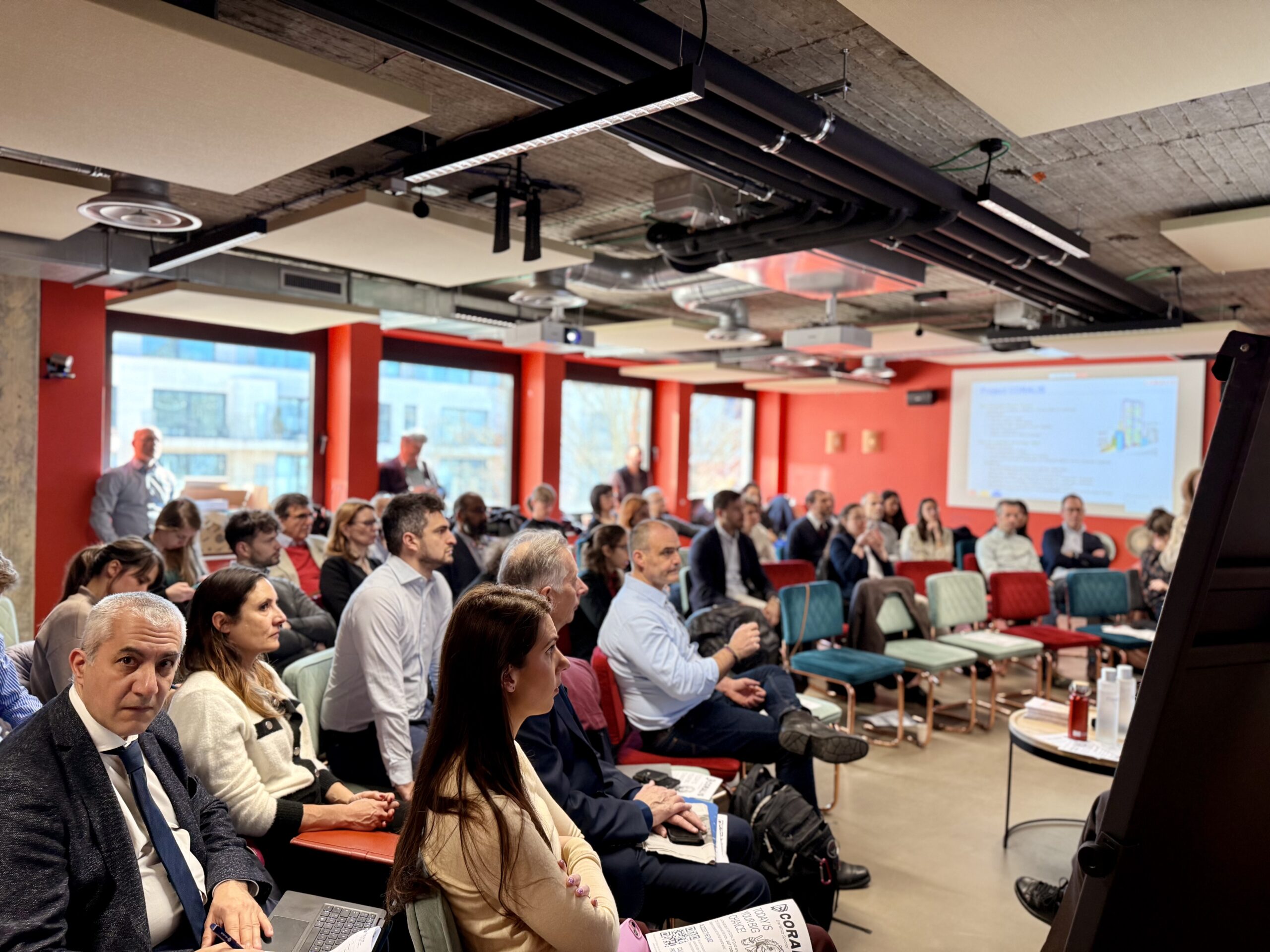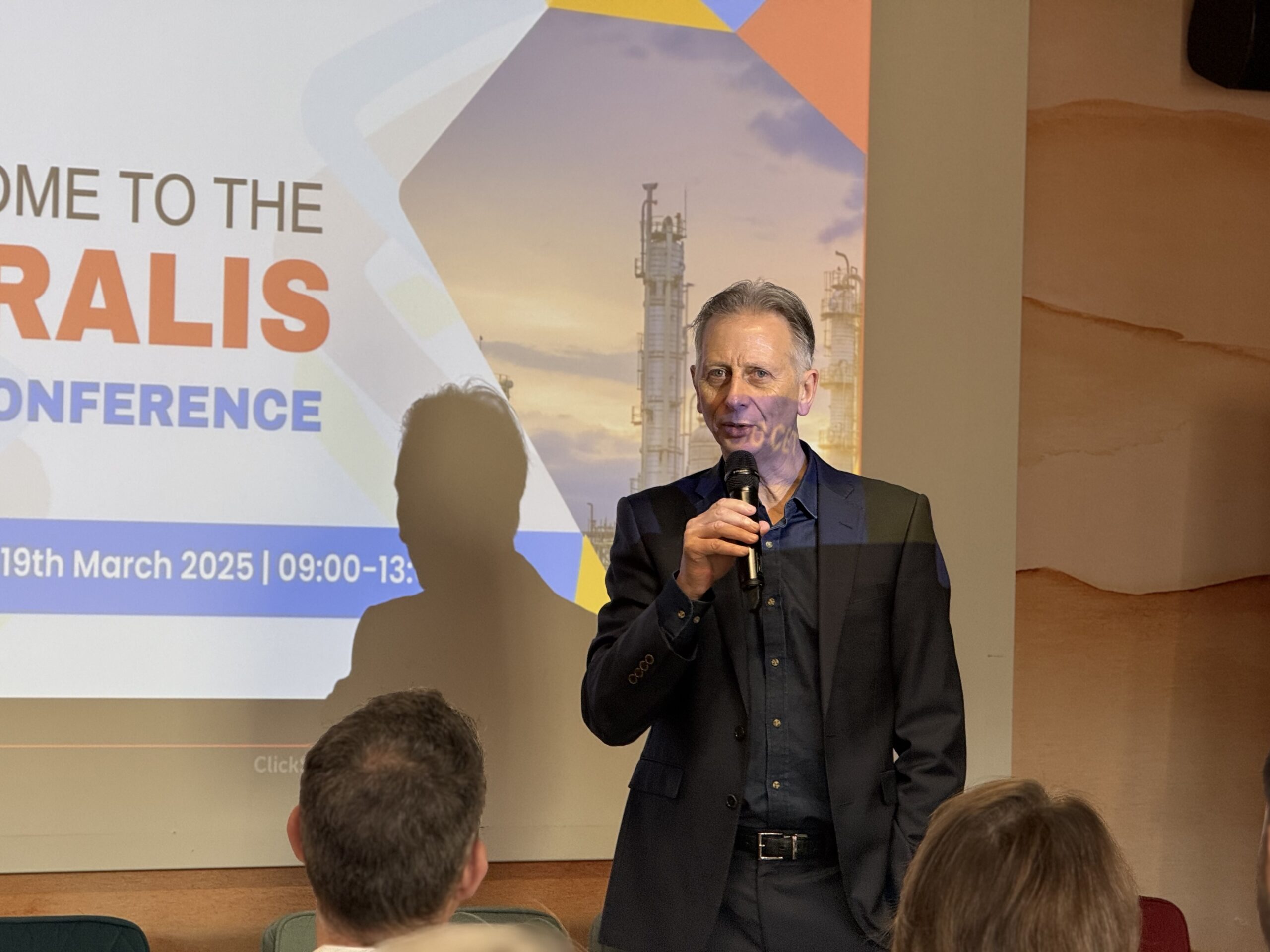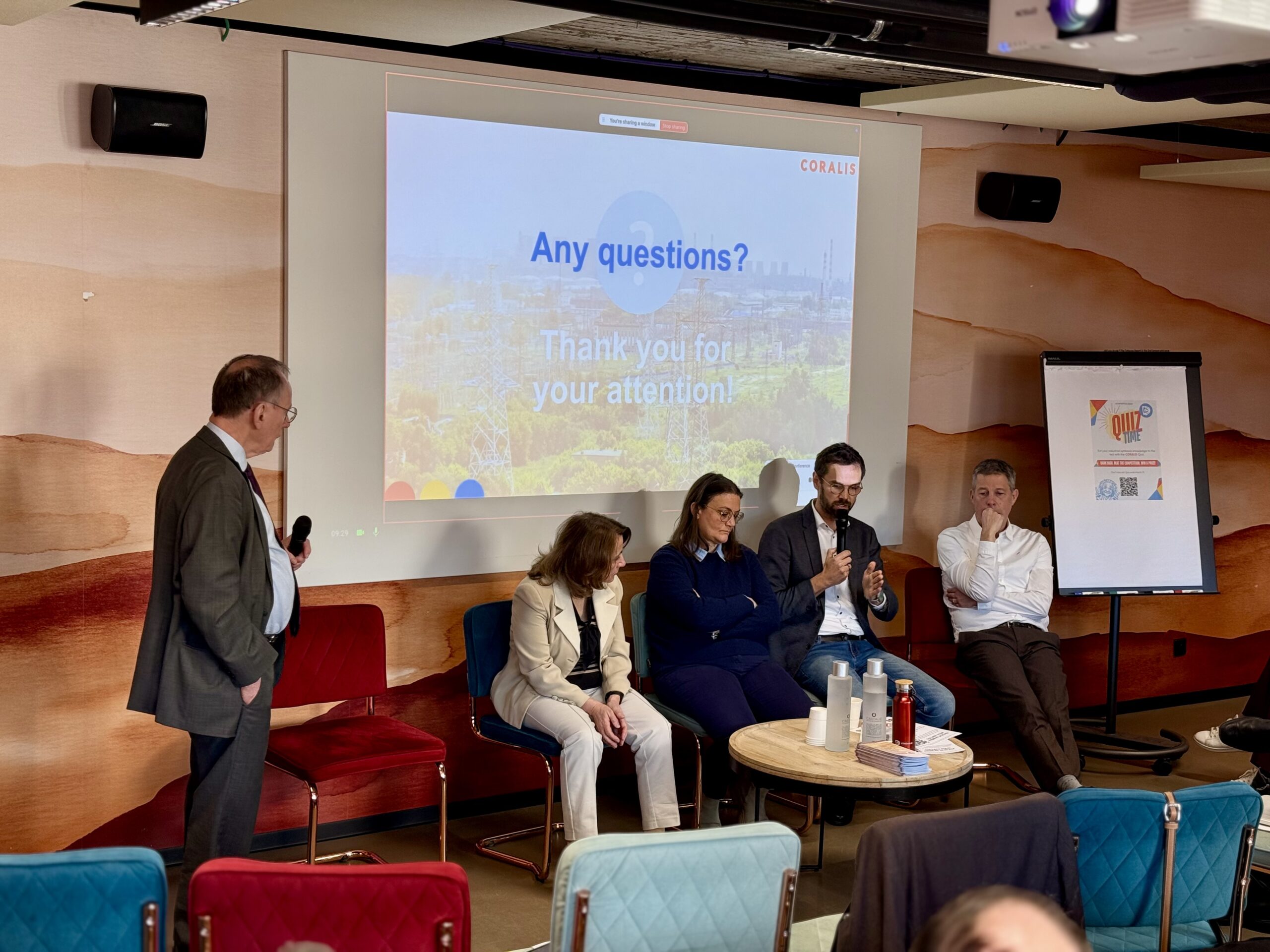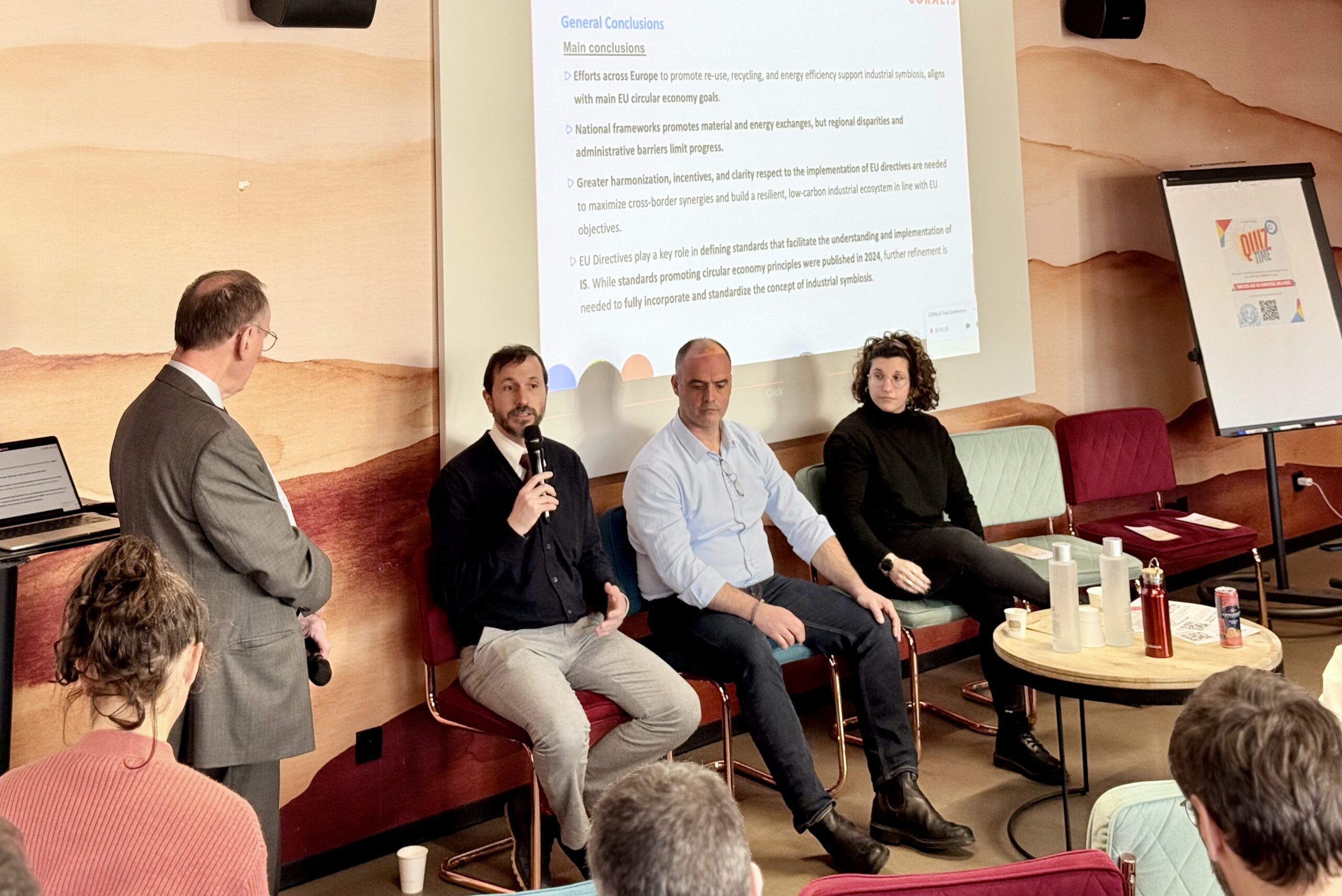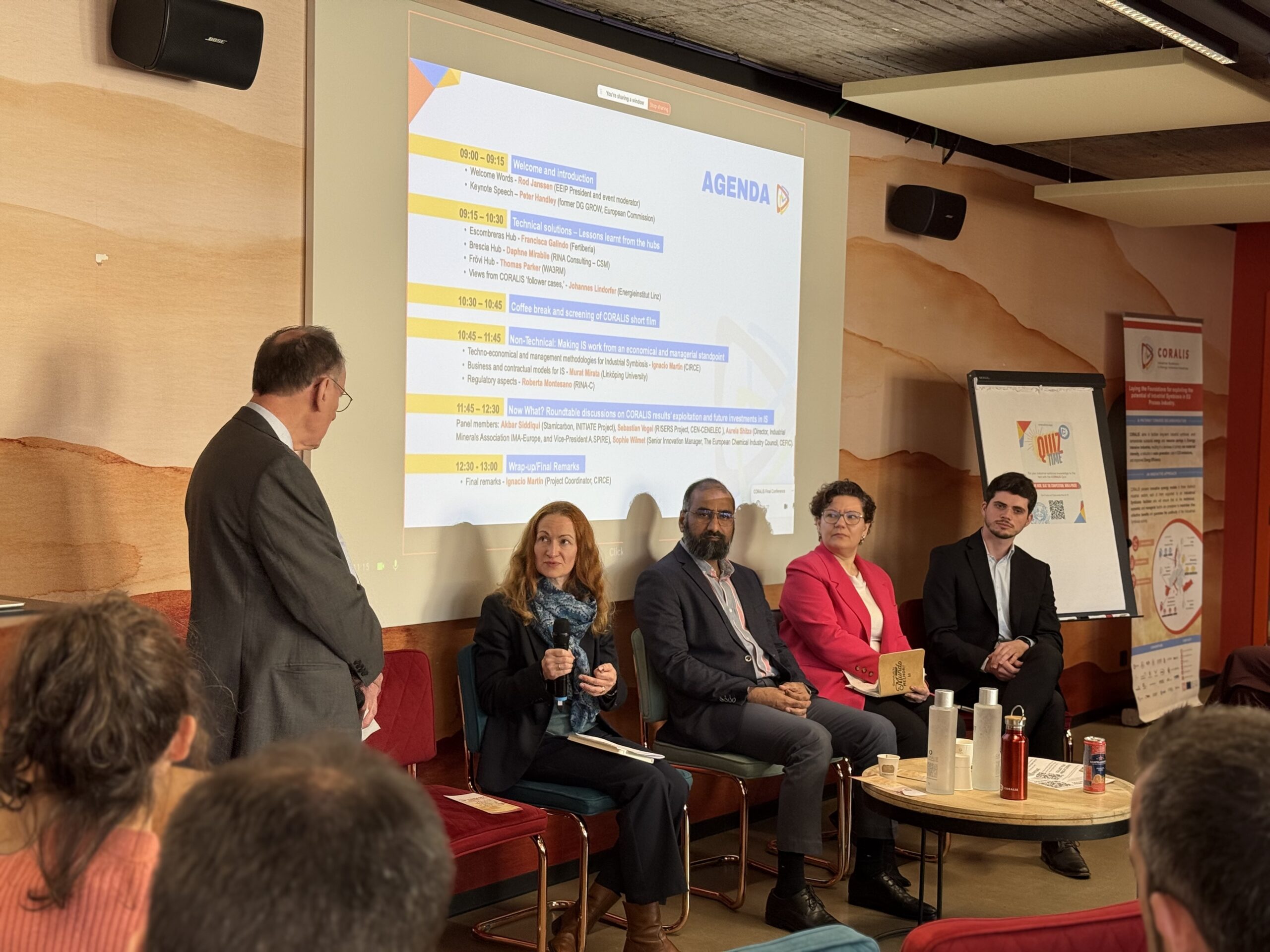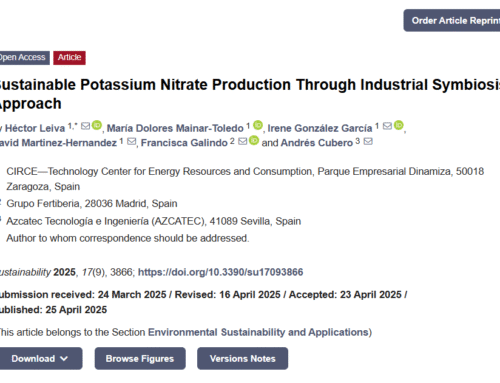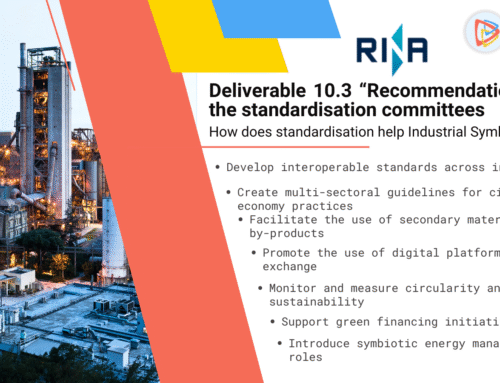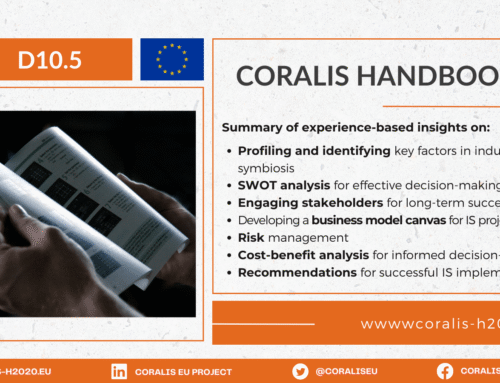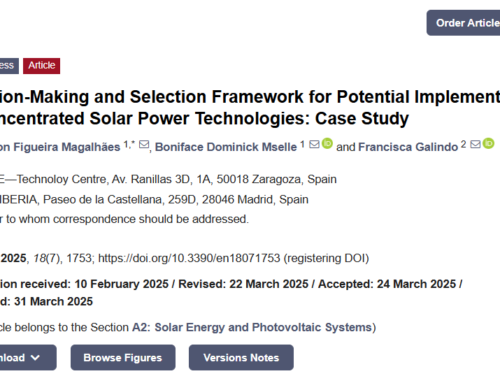The final conference of the CORALIS project took place on Wednesday 19th March 2025 in Brussels, Belgium, bringing together stakeholders, partners and experts to celebrate the project’s achievements and discuss its position in the wider context of energy and industrial transitions in Europe. This event marked the culmination of 4 and a half years of dedicated research, collaboration and implementation on viable industrial symbiosis pathways, showcasing the significant impact the project has made.
During the conference, key speakers, including representatives from the project’s technical (Fertiberia, RINA-Consulting CSM, WA3RM, Energieinstitut Linz) and non-technical partners (CIRCE, Linkoping University, RINA-Consulting) provided insightful presentations on the project’s outcomes, challenges and lessons learned on:
-the implementation in the three demosites
-the insights for the project’s followers
-technoeconomic and management methodologies for IS
-IS business and contractual models
-IS regulatory aspects
The panel discussion that followed facilitated meaningful exchanges on best practices and future opportunities for further development and was joined by representatives from the European Commission, the RISERS project, IMA-Europe, A.SPIRE and the European Chemical Industry Council (CEFIC).
A recurring theme throughout the discussions was the complexity of regulatory frameworks, which continue to pose challenges for IS implementation. One of the major obstacles identified was the lengthy authorisation processes for IS initiatives, particularly at the master level, where financial gains are anticipated. Additionally, the absence of clear guidelines for CO₂ utilisation remains a critical barrier, hindering the establishment of new IS demonstration projects. What is more, data sharing also emerged as a fundamental issue. Companies often hesitate to disclose sensitive information, limiting collaboration and slowing down the adoption of IS practices. In terms of the added value of CORALIS, the designation of the role of facilitators in enabling IS was definitely a crucial part of it. These actors play a vital role in overcoming regulatory and business model challenges, ensuring that IS initiatives move beyond theoretical discussions into tangible action. Another important point made was the need for structured training programmes both for university students and public servants alike to support the mainstreaming of IS.
The final event reinforced the idea that IS requires a shift in perspective—moving beyond the boundaries of isolated systems towards systemic change. As the CORALIS project nears its conclusion, partners reflected on the progress made and the momentum generated within the IS community. The demonstration cases proved that IS is not just a theoretical concept but a practical, achievable model with tangible benefits. While technical challenges were overcome, non-technical barriers—such as regulatory complexities and business model constraints—emerged as equally significant factors in determining success.
You can watch the recording here and downlowd the slides here.


